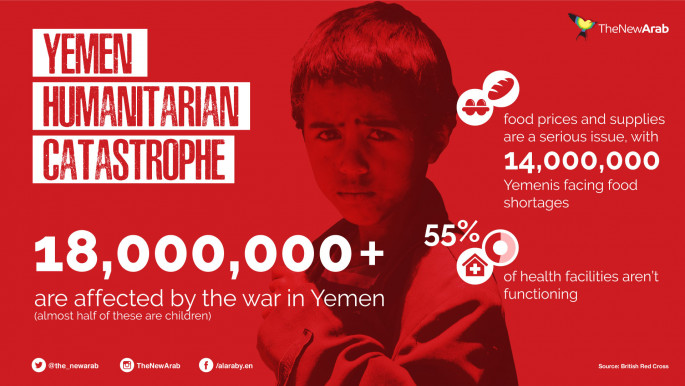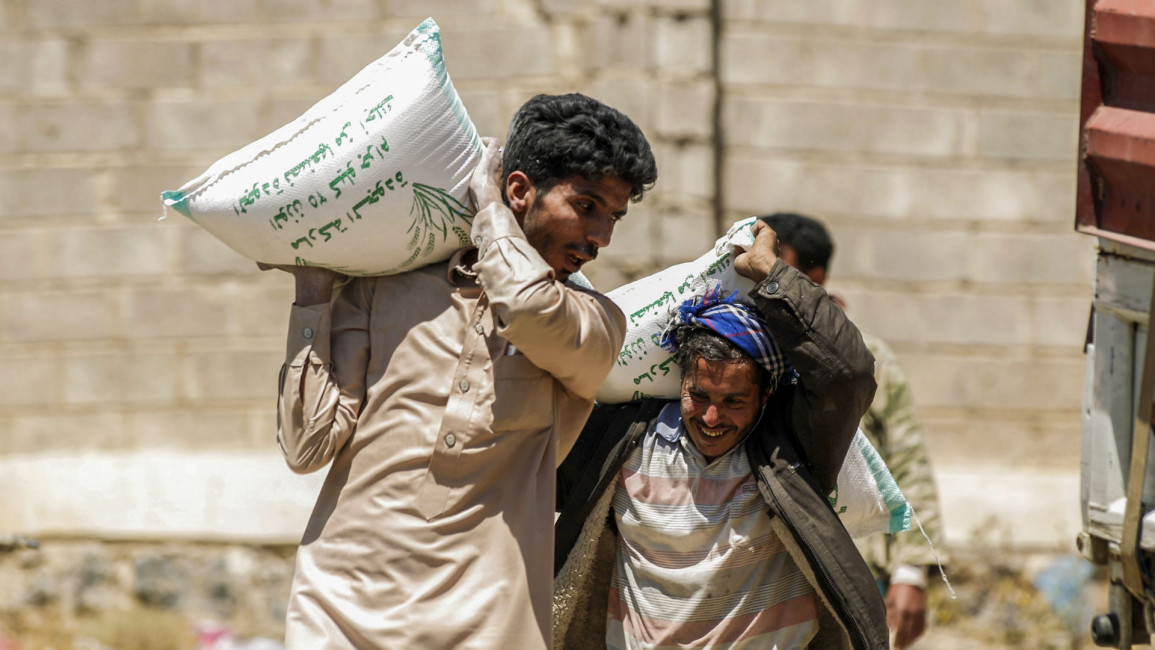Yemen aid not reaching those in need, say activists
"Without putting an end to the war, ending the Saudi-led coalition's blockade and corruption of factions in the ground, I'm afraid there will be many more aid conferences to come and no supply will ever be enough to meet demand," said Hisham al-Omeisy, a Sanaa-based political analyst.
Speaking to The Guardian, Omeisy said that Yemenis were not optimistic about receiving outside help.
The United Nations and top government officials from Switzerland and Sweden co-hosted the pledging conference in the Swiss city. The aim was to bridge a funding gap in the 2017 humanitarian appeal of $2.1 billion. Prior to the conference, only about 15 percent had been met.
However, despite the funding increasing from 15 percent to over 50 percent, Omeisy said it still fell short of addressing all the needs with the rapidly deteriorating humanitarian situation due to the continuation of the war.
"The current conditions on the ground are hindering delivery and distribution of aid – little is trickling in and reaching the actual deserving recipients," he explained.
Omeisy said 90 percent of imports that are being blocked by the Saudi blockade "are food, fuel, and drugs," meaning that the Arab coalition is effectively "choking the country that is heavily reliant on imports".
He added that local groups and warlords are also hindering aid delivery.
"At times there is outright looting and selling on the black market. While Houthis block access to besieged cities like Taiz, others from both sides of the conflict, including the Saudi-backed Yemen government, are making huge profits creating shortages and spiking prices of certain items such as fuel and gas," he said.
Tuesday's UN conference came as dozens of Yemenis ended a week-long march to the port city of Hodeidah from Yemen's capital Sanaa to demand the establishment of a humanitarian zone.
Participants held banners reading "Do not close, do not target Hodeidah port" and "Do not starve the Yemeni people, do not commit genocide".
Roughly 60 percent of Yemen – which was already the Middle East's poorest nation prior to the war – is going hungry while airstrikes by the Saudi-led coalition continue to claim civilian lives and destroy infrastructure.
The UN estimates that more than 10,000 people have been killed and more than 40,000 left wounded in the impoverished state.



